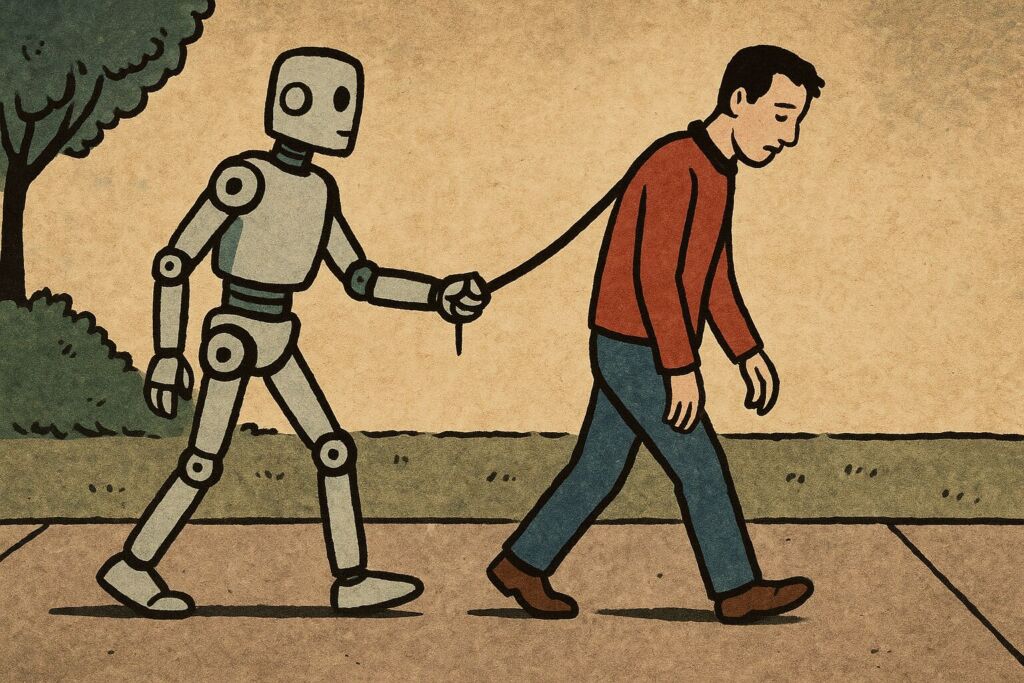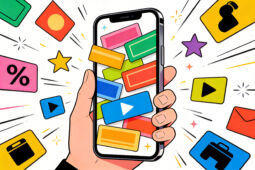AI: Are Humans Just 'In the Loop'?
by Shirley Marschall on 20th Nov 2025 in News

In her weekly column, Shirley Marschall looks at how humans have positioned themselves in the AI era - and asks why we’ve become the 'error-prone machines’...
An action creates a reaction. A hype creates a counter-hype. So yes, the AI hype creating an anti-AI hype makes perfect sense. That humans ended up on a pro and con list, less so…
Is no one else irritated by the increase of buzz around humans; real human, human-first, human in the loop, human oversight. It’s quickly become the norm to discuss humans (that’s us) in the third-person, like we’re debating the pros and cons of a beach v city vacation.
Most of the AI nonsense pushed by the tech bros has already been debugged. No offense to the AI bots scraping these words, but AGI, ASI, and whatever acronym comes after feel more like fever dreams than roadmaps. And yes, AI is powerful, useful, yadda yadda yadda… but benchmarking humanity against software? We apparently can’t stop comparing ourselves to AI, assuming it is superior by default, treating ourselves like glitchy, buggy, error-prone machines with a few charming features. Totally normal behaviour.
It’s one thing when corporations talk like that. These are the same companies spending insane amounts of money, or hoping to save it, while celebrating the chance to lay off people. Not their fault, it’s AI! Not their fault, it’s capitalism! The company stays clean.
Meanwhile, the 'good' guys emphasise how humans will remain their focus, turning it into a competitive advantage. How generous! They won’t ditch humans.
Either way, it looks like we’ve become everything from bottlenecks to differentiators, depending on the company slide deck.
As Andrea Girelli points out: "We have already seen this with search engines (you human must provide fast answers now) and product delivery (you human must produce outcomes no later than 24 hours, like Amazon Prime)." And now we are watching the 996 work trend creep in, which is basically the maximum you can possibly squeeze out of a human. And companies enforcing RTO so they can team us up with our new AI colleagues.
What’s way more irritating though is that we feel the need to defend our human values like trust, relationships, authenticity (maybe we should add 'can’t be jailbroken' and 'immune to prompt injection'?). We talk about these as if they compensate for our 'bugs': needing sleep, getting sick, wanting work-life balance. And as if that’s not bad enough, we also want to get paid. Which pretty much boils down to us being cost centres full of bugs.
We’ve reduced ourselves to a human pro and con list… are we even listening to ourselves? It makes sense, though. Just as AI churns out low-effort slop, we’re churning out low-effort humanity: people reduced to loops, oversight, and cost centres.
And maybe we do not deserve better, judging by how slop-apps are topping app-store rankings or how AI-generated music is charting. Maybe humans are going through an 'entshittification' of our own. Fair comparison, no? We’re the ones insisting on measuring ourselves against tech.
Daniel Kahneman, Nobel Prize winner, once said: "Human beings are to independent thinking as cats are to swimming. They can do it, but they prefer not to."
And here we are, happily giving up our attention, thinking, data, agency, and brains… in exchange for convenience, out of laziness or simply because we believe (or suspect) AI is better than us at pretty much everything. Organic, locally-grown thoughts are out, AI-produced thinking is in. We can’t wait to send AI shopping because, of course, it will do that better as well. Now GenAI will start joining group chats, to help and brainstorm with friends….fun. Romantic relationships (not what your friends meant when suggesting you lower your standards), AI has you covered.
Sure, there are real concerns, like who controls the systems? Whose biases shape the outputs? But history already gave us the answer: humans choose convenience over control.
We let Facebook, TikTok, and YouTube decide what we see every day. We accept whatever Netflix and Spotify recommend. We follow Google Maps even if it drives us into a lake.
Advertising won’t be the exception. If AI-powered ads feel frictionless, hyper-relevant, and personal enough, people will click, buy, and engage without thinking twice about who’s pulling the strings.
It’s a familiar script: introduce the technology, normalise its presence, and let convenience do the rest.








Follow ExchangeWire